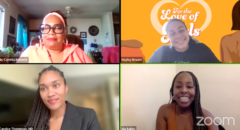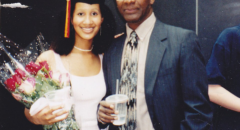Clinical trials can seem mysterious and intimidating to many people, especially those in the Black community who have historical reasons for medical mistrust. However, for those facing serious diagnoses like triple-negative breast cancer, participating in clinical trials has proven to be life-saving.
You’ll Get the VIP Treatment
Far from being treated like “guinea pigs,” clinical trial participants often receive what Latoya Bolds-Johnson calls “the VIP treatment.” As a triple negative breast cancer survivor, she explains: “You’re going to get the standard of care of medicine. You’re going to get whatever is the latest and greatest medication that’s available for your disease.”
This enhanced level of care is something Ricki Fairley, another cancer survivor, emphasizes: “You can’t get better care. There’s more people prodding you and picking on you and scanning you. If you just went on chemo today for breast cancer, you probably wouldn’t have a scan for three months. But if you’re in a trial, you’re gonna get scanned every month because they wanna know if it’s working.”
How to Find a Clinical Trial
For many patients, finding the right clinical trial requires persistence and self-advocacy. Karen Peterson, who survived stage four triple negative breast cancer through a phase one clinical trial, describes her journey as “a long, arduous story. It had a lot to do with self-education, self-advocacy, and being able to make a decision under a really specialized environment.”
Sometimes, patients must push past dismissive healthcare providers. Latoya recalls: “I was dismissed a lot by my oncologist whom I fired, who did not offer immunotherapy to me. And so after I fired him, I met with another medical oncologist who was progressive… I told her from the very beginning, I need to be a part of a clinical trial.”
Building a Medical Trust Fund for Your Family
Participating in clinical trials isn’t just about personal survival—it’s about creating a healthier future for loved ones. Latoya views her participation as “building my own medical trust fund for my children. That was so important for me… If we can get one step closer to formulating a cure or developing the latest treatment methods for triple negative breast cancer, then that may help my children along the way.”
This perspective helps counter the misconception that clinical trials are only for the terminally ill. As Latoya notes, “You don’t have to be a part of a clinical trial just in a more of, like, end of life stage.”
Get Access to Expertise
One unexpected benefit of clinical trial participation is direct access to leading medical experts. Dr. Tony Lozama from Novartis points out: “When it comes to research, you may be sitting across from the best oncologist, the best cardiologist in America for an hour talking about study and walking through with you.”
Karen agrees: “How many times are you gonna have a top-rated researcher who’s maybe one of best in the world? How many times are you gonna be able to have twenty, twenty-five minutes, an hour, an hour forty-five with this person?”
Overcoming Clinical Trial Hesitation
For those hesitant about clinical trials, these survivors offer straightforward advice. Latoya keeps it simple: “Just do it. Don’t be afraid.”
Karen suggests: “Go because you don’t know what’s gonna come out of that conversation. Sometimes, access to guidance…might open up a lane to…an FDA-approved drug that you didn’t even know about.”
Ricki recommends speaking with advocacy groups: “Call an advocacy group. Call us, call somebody that you know where you can talk to a patient that went through the experience…But it’s the best science we have.”
The panelists emphasize that clinical trials aren’t just for breast cancer. They span everything from heart disease to skin care products. As Taylyn Washington-Harmon notes, “There are amazing trials out there that are invasive to noninvasive.”
By participating in clinical trials, especially for Black patients, individuals not only access cutting-edge treatments but also help ensure that future medications and therapies work effectively for all communities.









